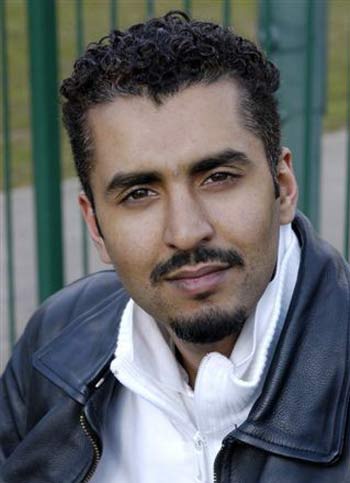
Four Years in an Egyptian Jail
London, Asharq Al-Awsat- “I never believed that the freedom I grew accustomed to in my country, Britain, will one day become a curse and will cause me to lose four years of my life, spent behind bars in an Egyptian jail.” With these words, Majid Naawaz, a member of the Islamist party Hizbut Tahrir, began to describe his ordeal, a week after he was set free
Cairo agreed to his request for early release after he had served more than two thirds of his term. Nawaaz and fellow Britons Ian Nisbet and Reza Pankhurst from London were sentenced by the Egyptian state security court to five years in jail for being part of a banned group. According to emergency laws, suspects have no right of appeal. The 47-months he spent incarcerated have not influenced his opinions of Hizbut Tahrir but increased his knowledge and support for Islamic extremists.
Nawaaz accused the British government of neglecting his rights and not making enough effort to secure his release, despite “routine” visits by the current and former British ambassadors to the Turra prison. He said he felt sad and upset Prime Minister Tony Blair visited the Red-sea resort of Sharm al Sheikh but did not discuss the detention of the three British men with the Egyptian authorities.
The former student admitted being a member of Hizbut Tahrir, which is not banned in Britain, but denied having any links to any Egyptian political party. In perfect Egyptian Arabic, Nawaaz explained how he traveled Egypt to study Arabic, after spending two years at the School of Oriental and African Studies in London. He unexpectedly found himself in jail nine months after he landed in Egypt.
“We did not deny belonging to [Hizbut Tahrir] because it is not illegal in Britain . Our membership did not take place in Egypt.” The group is a banned organization in Egypt.
Nawaaz spoke bitterly about the time he spent in the Turra prison. He was the only one to be arrested Alexandria, when Egyptian security forces surrounded his building at 4am.
Nawaaz claimed his colleague Rida was tortured very badly whilst in the State Security jail in central Cairo.
Known as number 42 in the state security jail, Nawaaz said he was not allowed to speak with his colleagues. The most difficult period was when he was in solitary confinement in a narrow cell, throughout the investigation, without a toilet, bed or electricity. He slept on the damp, cold floor. The Egyptian embassy in London was unavailable for comment.
Nawaaz blamed an informer at Alexandria University for alerting the authorities, because he used to speak freely about the group and its political and religious ideologies, at the mosque annexed to the university. “My Egyptian colleagues used to ask me about life in Britain and how religion is practiced. I answered freely, as I was accustomed to.”
During interrogation, intelligence officers asked Nawaaz about his relation with Egyptian Islamists living in Britain, including Yasser Al Sirri, head of the Islamic observation center, who was sentenced by the Egyptian authorities to death for his involvement in the attempted assassination of prime minister Atef Sidki, and life behind bars for his role in the returnees from Albania case in 1999.
“They also asked me about my relationship to Hani al Sibai, who lives in Britain and was sentenced to life behind bars in [the same case] and Abu Hamza al Masri [who is currently serving a 7-year sentence in London].”
“But, when I was first detained in Egypt, four years ago and until today, I do not know these people. I used top hear about Abu Hamza from his speeches to the British media.”
The 28-year old recounted with fear the threats he received while at the State Security Investigations headquarters in Cairo’s Lazughli neighborhood. Officers told him that he would not be released until London extradited the Islamist militants on British soil. He added that he met Dr. Mustafa al Aryan, the Muslim Brotherhood spokesman and Dr. Ayman Nour and former general prosecutor Maher al Jundi. He revealed that he was most inspired by Dr. Badih Mohammed Badih, a senior official in the Muslim Brotherhood who knew Sayyid Qutb.
Nawaaz’s wife Rabiah left Cairo after his arrest but returned two years later. Rida’s mother who was also living in the Egyptian capital used to send them food one a week to alleviate their boredom. Many dual nationals were detained with the three Britons, including an Egyptian American and an Egyptian British named Akram al Sharif. He is expected to be released in June 2006.
In the Turra prison, Nawaaz explained, cells used to be opened at 7:30 every morning and shut at 5 or 6pm , depending on the season. The prison complex was divided into three sections for political prisoners, one section for officers suspected of corruption or torture and one for criminals. He was not surprised to be released before completing his sentence as the jail authorities had informed the three Britons they would be set free in January but later postponed the date to February and then to last week.

Four Years in an Egyptian Jail
